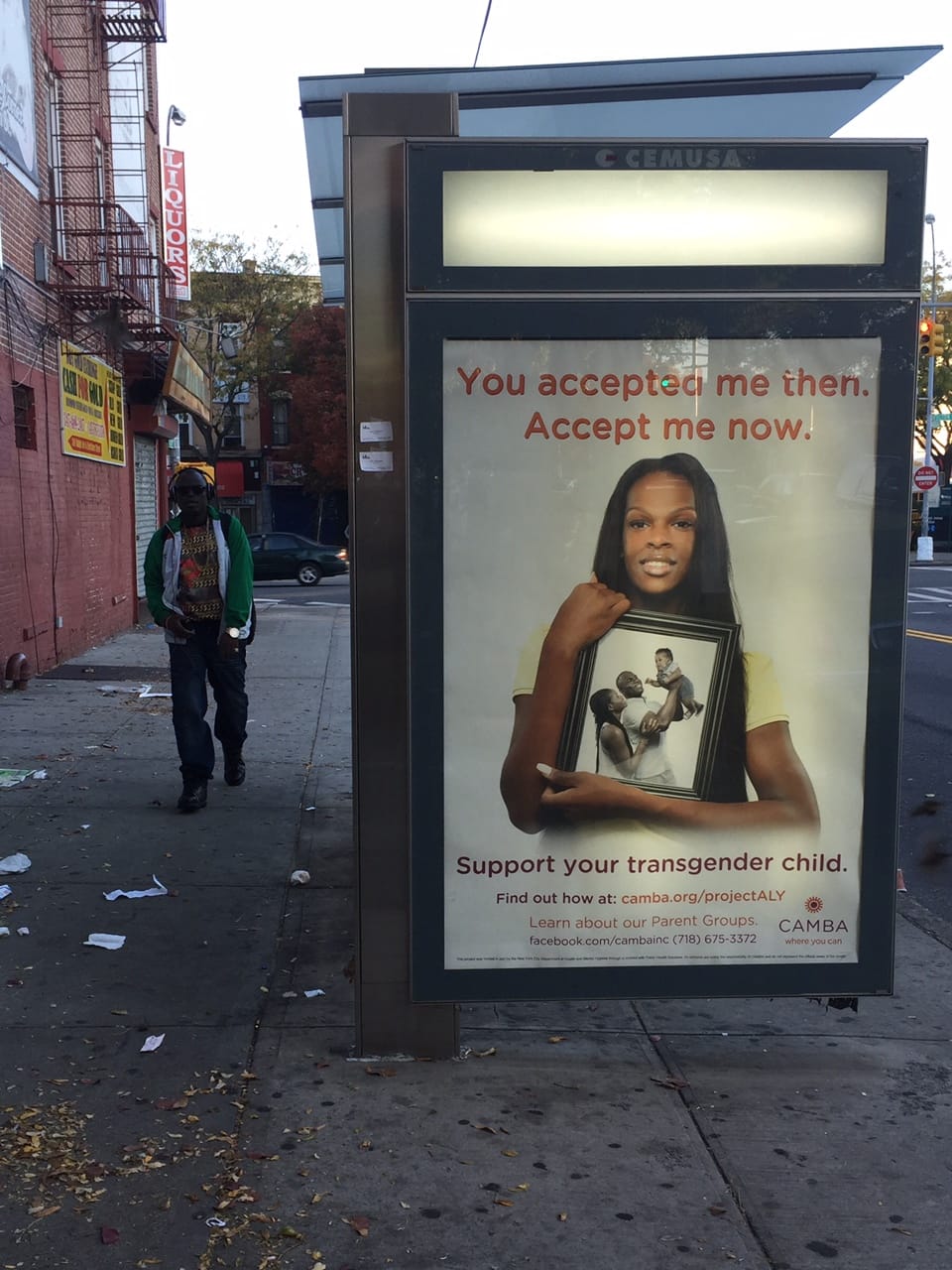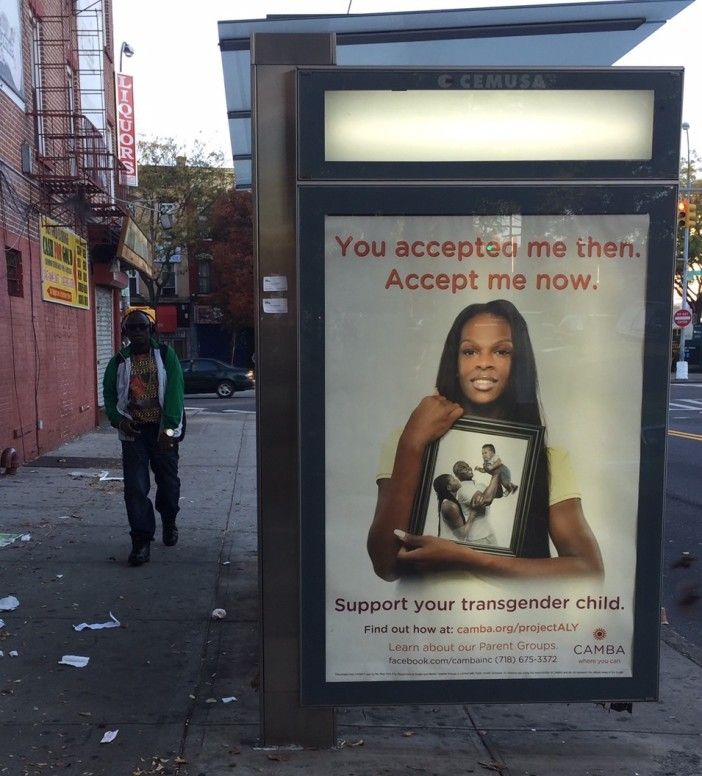CAMBA’s Project ALY Fights to Diminish LGBTQ Stigma


You may have noticed the newly launched Project ALY’s bus ads and bus shelters around the Flatbush area featuring a young African American transgender women and a young gay boy with his parents, encouraging families to support their LGBTQ children.
Project ALY is a program focused on educating the parents/guardians of LGBTQ youth about the risks youth face and the role parents play in promoting those risks. It’s composed of a Brooklyn-wide bus ad campaign, informational seminars, and support groups open to the public to help inform the community.
“Our program is different and unique in the fact that it’s a structure change program,” said Thanesha Senat, program manager of Project ALY.
The program, which is supported by the non-profit CAMBA, hopes to document positive changes in stigma surrounding LGBTQ.
The Brooklyn-wide campaign is based on research published in The Journal of Pediatrics by Caitlin Ryan of San Francisco State University. Her studies show that LGBT youth with moderately accepting families are far less likely to engage in risky behavior, attempt suicide, report depression, or contract HIV. The research is also the basis of her own programThe Family Acceptance Project which focuses on meeting families in their own cultural space.
“Families had been excluded from all the emerging services for LGBTQ youth”, said Ryan. “Especially in the context of their cultural world.”
Annette Cottler, parent advocate, who took in her nephew 12 years ago after her sister found out that the eight-year-old boy was LGBT, helps host the Project ALY seminar presentations.
“It was looking me in the face, not so much that I agreed with the fact that he was gay, but this is the child that I promised to love no matter what,” she said. “And no matter what, means no matter what.”
She uses her story to help with the program’s very light-handed approach at educating the public. It attempts to open minds without making anyone feel guilty for their own beliefs.
“We don’t come across as blaming anyone,” said Colter. “But at the end of the presentation it makes people take a look at the role they played in the unhappiness of that child that they were originally supposed to love.”
The results of Caitlin Ryan’s The Family Acceptance Project show that acceptance and changes in acceptance can be documented. With the proper involvement and education, the rejection of LGBTQ family members can be prevented.
Ryan’s data shows that kids with families who are even moderately accepting are eight times less likely to commit suicide and four times less likely to contract HIV.
“We often experience stuff like the resistance at first,” said Annette Cotler. “Then you can actually see light bulbs, like ownership of the role I played in perhaps causing this child to go the other way and where the trust was snatched from.”




